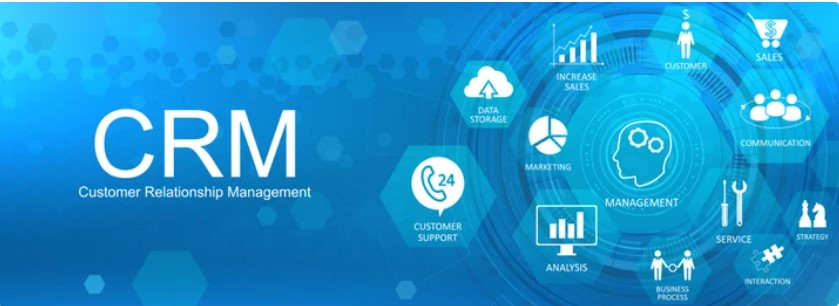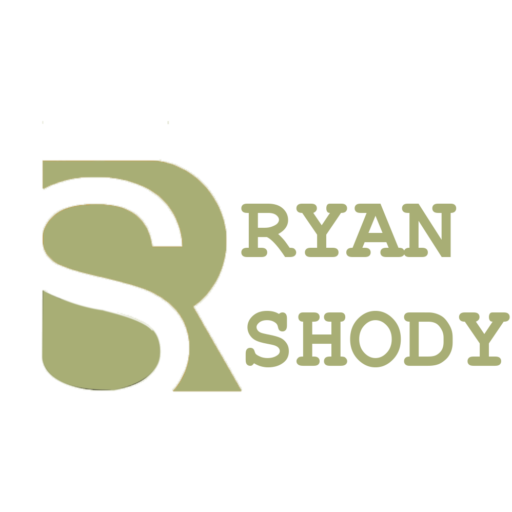Welcome to our blog post where we compare Agency Management System vs CRM. In this concise overview, we’ll highlight the key differences and advantages of each system to aid in your decision-making.
Whether you’re in the insurance sector or need a tool for comprehensive customer relationship management, this post will provide you with essential insights to choose the right solution for your business needs.

Quick Comparison: Agency Management System vs CRM
When exploring the Agency Management System vs CRM debate, it’s crucial to understand that both systems are designed to streamline business operations but serve different purposes.
An Agency Management System is tailored specifically for insurance agencies or brokerage firms, focusing on policy management, commission tracking, and industry-specific workflows, thereby excelling in Insurance Policy Management.

On the other hand, a Customer Relationship Management (CRM) system is more versatile, catering to a broad range of industries and excelling in Customer Engagement, managing customer interactions, sales tracking, and marketing automation.

For businesses in the insurance sector, an Agency Management System might be more beneficial due to its tailored features for Insurance Policy Management. However, companies seeking a broader approach to Customer Engagement and Sales Forecasting might find a CRM system more suitable.
Verdict for Quick Readers:
In the Agency Management System vs CRM showdown, if your primary need is managing insurance policies and agency-specific tasks, an Agency Management System is preferable. However, for a broader approach to customer engagement and sales, a CRM system is the go-to solution.
| Agency Management System | CRM |
|---|---|
| ✔1. Policy Management: Tailored for insurance policy handling | ✔Lead Management: Tracks and manages potential customers |
| ✔2. Claims Processing: Efficient insurance claims management | ✔Sales Automation: Streamlines the entire sales process |
| ✔3. Commission Tracking: Essential for tracking insurance broker commissions | ✔Contact Management: Organizes and tracks customer interactions |
| ✔4. Regulatory Compliance: Tools for insurance industry compliance | ✔Marketing Automation: Automates marketing campaigns |
| ✔5. Renewal Management: Manages policy renewals effectively | ✔Customer Service Tools: Enhances client support and retention |
| ✔6. Industry-Specific Reporting: Reports tailored for insurance metrics | ✔Customizable Dashboards: Adaptable to various industry needs |
| ✔7. Document Management for Insurance: Specialized for managing insurance documents | ✔Project Management: Aids in managing customer-related projects |
| ✔8. Client Risk Assessment: Assessing client risks in insurance | ✔Social Media Integration: Manages social media interactions |
| ✔9. Insurance Product Catalog: Modules for managing insurance products | ✔Cross-Departmental Collaboration: Facilitates collaboration across departments |
Feature Comparison: Agency Management System vs CRM
The comparison between an agency management system and a CRM lies in their specialized features catering to distinct business needs.
- Policy Management vs Lead Management: Agency management systems provide comprehensive policy management tools, essential for insurance-related activities. In contrast, CRMs focus on lead management, tracking potential customers through various stages of the sales funnel.
- Claims Processing vs Sales Automation: Agency management systems are equipped with features for processing insurance claims efficiently. CRMs, however, excel in automating sales tasks, streamlining the sales process from initial contact to closing.
- Commission Tracking vs Contact Management: In agency management systems, commission tracking is a key feature, crucial for insurance brokers. CRMs offer robust contact management systems, helping businesses organize and track all customer interactions.
- Regulatory Compliance vs Marketing Automation: Agency management systems often include tools to ensure regulatory compliance specific to the insurance industry. CRMs typically feature marketing automation capabilities, aiding in efficient campaign management across multiple channels.
- Renewal Management vs Customer Service Tools: Agency management systems facilitate efficient management of policy renewals. CRM systems, on the other hand, provide a suite of customer service tools to enhance client support and retention.
- Industry-Specific Reporting vs Customizable Dashboards: Agency management systems offer reports tailored to insurance industry metrics. CRMs provide customizable dashboards that can be adjusted to suit various industry requirements.
- Document Management Specific to Insurance vs Project Management: Agency management systems include document management features specifically designed for insurance documents. CRMs often include project management tools, aiding in the oversight of various customer-related projects.
- Client Risk Assessment vs Social Media Integration: Agency management systems typically offer tools for assessing client risks in the context of insurance. CRMs integrate with social media platforms, allowing businesses to manage and analyze social media interactions.
- Insurance Product Catalog vs Cross-Departmental Collaboration: Agency management systems have specialized modules for managing an insurance product catalog. CRMs, in contrast, emphasize features that facilitate cross-departmental collaboration, enhancing overall organizational efficiency.
Personal Experience (Agency Management System vs CRM)
My journey with agency management system vs CRM began as I navigated the complex landscape of business tools. Utilizing both systems offered me a comprehensive understanding of their functionalities and user experiences.
Agency Management System Experience:

- User-Friendly Interface: The system’s interface was intuitive, making navigation and data entry straightforward.
- Customization: It offered customization options tailored to insurance-specific needs.
- Efficient Policy Management: Managing insurance policies was seamless, with easy access to policy details and renewals.
- Claims Processing: The streamlined process for handling claims significantly reduced administrative burdens.
- Secure Data Handling: Security features for sensitive insurance data instilled confidence in the system’s reliability.
CRM Experience:

- Versatile Contact Management: Managing a broad range of customer information was efficient and organized.
- Sales Automation Tools: These tools facilitated a smooth sales process, from lead generation to closing deals.
- Marketing Integration: The integration with marketing tools was a game-changer for campaign management.
- Customer Support Features: These features enhanced my ability to provide timely and effective customer service.
- Collaborative Environment: The system promoted collaboration across different departments, improving overall workflow.
Both systems distinctly cater to their specific domains. An agency management system is unparalleled in managing insurance-related tasks with precision, while a CRM excels in overarching customer relationship management across various industries.
The agency management system vs CRM comparison underlines how both systems, despite their distinct focuses, converge in elevating business efficiency and customer satisfaction.
Pricing and Subscription Plan for Agency Management System vs CRM
Understanding the pricing and subscription plans for agency management system vs CRM is crucial for businesses looking to invest in these tools. Each system follows a different pricing structure, reflective of their unique features and target markets.
Agency Management System Pricing:
- Basic Plans: Starting from around $50 to $100 per user per month. Suitable for small agencies needing essential policy management and client tracking features.
- Mid-Range Plans: Priced between $100 to $150 per user per month, often including advanced features like detailed reporting, claims processing, and commission tracking.
- Premium Plans: Can exceed $200 per user per month for large agencies, offering extensive customization, integration options, and full-suite policy management.
- Set-Up Fees: Some systems may charge an initial set-up fee, which can vary widely depending on the level of customization required.
- Add-On Services: Additional fees for extra services like data migration, custom report creation, or specialized training sessions.
CRM Pricing:
- Free Versions: Many CRMs offer a basic free version, typically with limited features and user capacity, ideal for small businesses or startups.
- Standard Plans: Ranging from $20 to $70 per user per month, these plans usually include comprehensive contact management, sales automation, and customer support features.
- Advanced Plans: Priced between $70 to $150 per user per month, offering extensive functionalities like marketing automation, advanced analytics, and increased customization.
- Enterprise Solutions: For large organizations, enterprise plans can cost over $150 per user per month, providing highly customizable solutions and dedicated support.
- Annual Subscriptions: Often, opting for an annual subscription can result in significant savings compared to monthly billing.
Pros & Cons (Agency Management System vs CRM)
Navigating the comparison between Agency Management System vs CRM is crucial for businesses seeking the right tools for growth and efficiency.
Here, we delve into the pros and cons of both systems, providing insights into their functionalities.
| Agency Management System Pros | Agency Management System Cons |
|---|---|
| ✔Specialized Functionality: Precisely tailored for the insurance sector, excelling in policy and claims management. | ✘Limited Versatility: While excellent for insurance needs, it may not be as adaptable to other industries. |
| ✔Compliance and Security: Strong emphasis on regulatory compliance and secure data handling, crucial in the insurance industry. | ✘Higher Cost: Can be a significant investment, especially for smaller agencies. |
| ✔Customized Reporting: Industry-specific reports that cater to the unique needs of insurance businesses. | |
| ✔Efficient Policy Management: Streamlines the process of policy renewals and modifications, enhancing operational efficiency. | |
| ✔Commission Tracking: Offers detailed and accurate tracking of broker commissions. |
| CRM Pros | CRM Cons |
|---|---|
| ✔Broad Customer Management: Versatile across numerous industries, excelling in managing diverse customer relationships. | ✘Steep Learning Curve: Initial setup and usage can be complex, requiring time and training. |
| ✔Sales and Marketing Integration: Efficiently integrates sales automation with marketing tools, enhancing outreach and engagement. | ✘Generalized Approach: May lack specific features tailored to particular industries. |
| ✔Customization: Highly adaptable, allowing businesses to tailor the system to their specific needs. | |
| ✔Collaboration Enhancement: Promotes effective cross-departmental collaboration, improving overall business operations. | |
| ✔Advanced Analytics: Provides valuable insights into customer behavior and sales patterns, driving informed decisions. |
Alternatives (Agency Management Systems and CRM)
Exploring alternatives to Agency Management System vs CRM is essential for businesses seeking different solutions that might better align with their specific needs.
While both systems have their unique advantages, there are several other tools and platforms that offer similar functionalities with varying features.
Alternatives to Agency Management System:
- Applied Epic: A comprehensive system designed for insurance agencies, offering client data management, policy management, and reporting.
- Vertafore AMS360: A versatile insurance agency software providing client management, business automation, and enhanced data security.
- HawkSoft CMS: Known for its user-friendly interface, it offers client management, policy tracking, and reporting capabilities.
- EZLynx: A cloud-based system that provides agency management solutions with a focus on rate comparison and policy management.
- Sagitta: Aimed at larger agencies, it offers extensive features including client management, accounting, and business analytics.
Alternatives to CRM:
- HubSpot CRM: A popular choice for its user-friendly interface and comprehensive sales, marketing, and service hubs.
- Salesforce Sales Cloud: Highly customizable and scalable, offering extensive features for sales automation, customer engagement, and analytics.
- Zoho CRM: Offers a broad range of functionalities at competitive pricing, suitable for small to medium-sized businesses.
- Microsoft Dynamics 365: Integrates CRM with ERP capabilities, ideal for businesses looking for a comprehensive business management solution.
- Freshsales: A dynamic CRM solution with a strong focus on sales lead management, customer engagement, and intuitive user experience.
Other Relevant Categories: Comparing Agency Management System vs CRM
When evaluating Agency Management System vs CRM, it’s essential to consider various categories beyond their primary functions. This comparison sheds light on their adaptability to different business needs.
1. Integration Capabilities:
- Agency Management System: Primarily integrates with tools specific to the insurance sector, enhancing its ability to manage industry-specific tasks efficiently.
- CRM: Offers a wide array of integration options with diverse platforms, from email services to social media, enhancing its versatility in various business contexts.
2. Customization and Flexibility:
- Agency Management System: Specializes in insurance-related customizations, which might limit its flexibility in other business areas.
- CRM: Highly customizable, catering to a variety of business needs across industries, demonstrating its adaptability.
3. Data Analysis and Reporting:
- Agency Management System: Its reporting capabilities are focused on insurance metrics, such as claims and policy management.
- CRM: Provides extensive data analysis tools for a broad range of metrics, including sales performance and customer engagement.
4. User Experience and Interface:
- Agency Management System: Designed with the insurance professional in mind, it might have a more specialized interface.
- CRM: Generally features a user-friendly interface, accessible to a wider range of users including sales and marketing teams.
5. Scalability:
- Agency Management System: Effectively scales within the insurance industry, though its utility might be more confined to this sector.
- CRM: Highly scalable across various departments and industries, supporting business growth in a multitude of areas.
Conclusion/Summary: Who is the winner? (Agency Management System vs CRM)
Agency Management System vs CRM
In the Agency Management System vs CRM comparison, the winner is determined by the specific requirements of your business.
For insurance-focused agencies, Agency Management Systems are the clear choice. They cater specifically to insurance needs with features like policy management and claims handling, deserving a strong 90% in their specialized field.
On the other hand, CRMs are the ideal choice for a wide range of industries needing comprehensive customer relationship management. With their versatility in customer engagement and sales automation, CRMs earn an impressive 90% for their broad applicability.
In essence, Agency Management Systems are best for insurance-specific functionalities, while CRMs excel in general customer management across various sectors. Each system triumphs in its own area, designed to meet distinct business needs.




